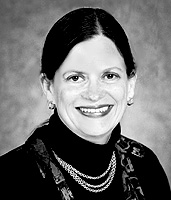|
âMusicology is all about the academic study of music â looking at our social history and examining how music connects to it, is shaped by it, and influences it,â explains Steven Baur of Dalhousieâs Department of Music. Together with his colleague Jacqueline Warwick, heâs co-organizing this yearâs edition of the MacKay Lecture Series, hosted by the Faculty of Arts. This yearâs theme is âMusic, Culture and Societyâ and consists of lectures from three of the worldâs most prominent music scholars.
The first takes place this Thursday evening and features Susan McClary, professor of musicology at the University of California. A specialist in the cultural criticism of music, sheâs world renowned for her work examining cultural reconstructions of gender, sexuality and the body in music ranging from early 17th-century opera to the songs of Madonna. Her lecture will be titled âSex, Death and Mary Magdalene at the Foot of the Cross.â
âFor a long time, the study of music has been hampered by the idea of music as art that transcends context, thatâs timeless,â explains Dr. Baur. âMcClary was among a handful of people who broke away from that, and asked questions like âWhat does it mean when women are always killed at the end of operas?â She exposed the gender-, race-, and class-based ideologies underlying much of the Western art music canon and led the way in âeffing the ineffable,â as she puts it, exploring how music relates to broader social and political issues.â
The MacKay Lectures continue next month with two more speakers. Robert Walser, also from the University of California, comes to Dalhousie on October 9 to explore how our understanding of music is changing when the music studio is rivaled by the laptop. The lectures conclude on October 30 with Beverly Diamond, Canada Research Chair in Traditional Music at Memorial University. She will explore the role that music plays in indigenous cultures, in particular with regards to race and gender.
The MacKay Lectures are funded by a donation given by Gladys MacKay in appreciation of the education her husband, the Reverend Malcolm Ross MacKay, received at pilipiliÂț» in the 1920s.
LINK: , Faculty of Arts and Social Sciences

